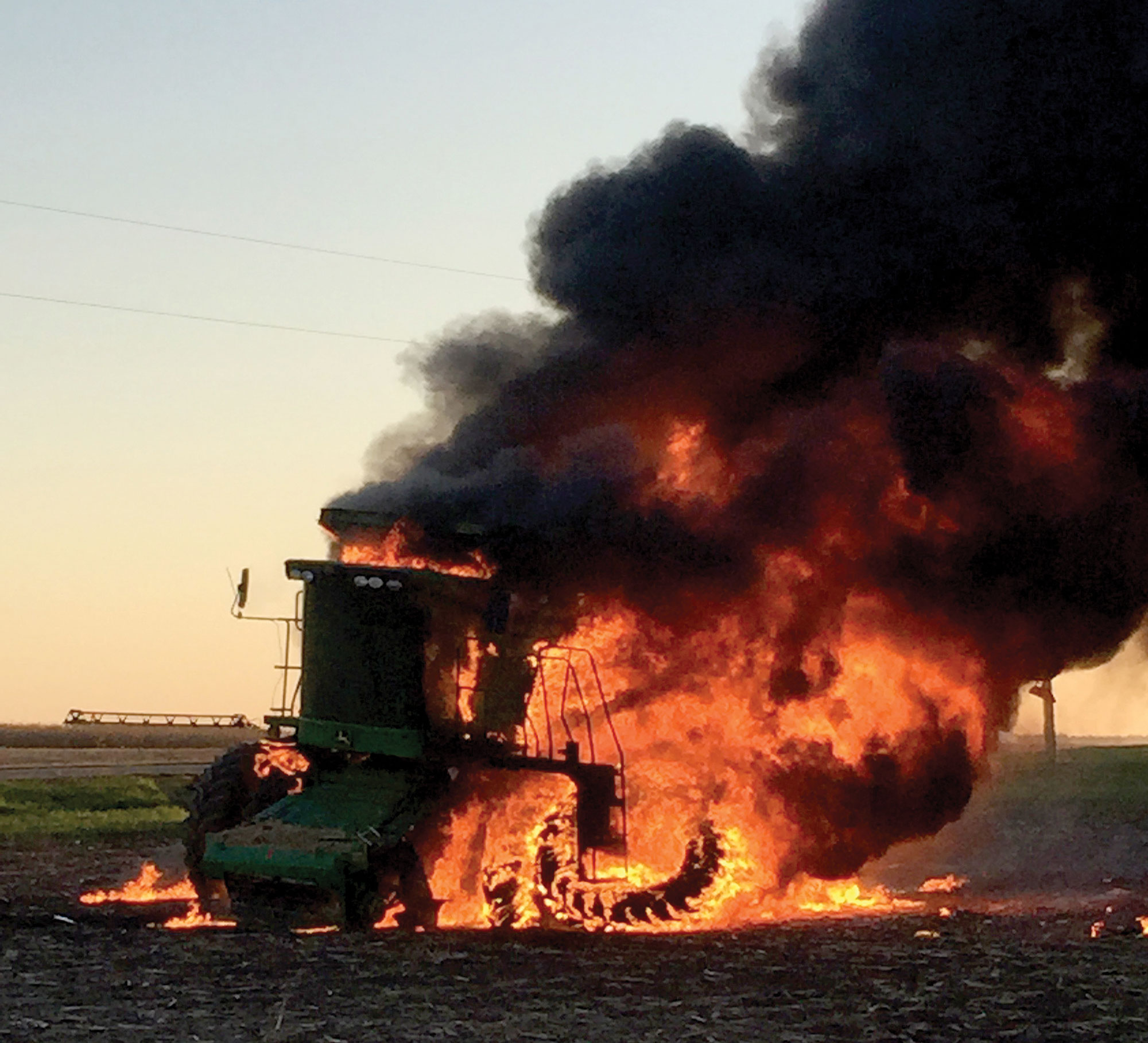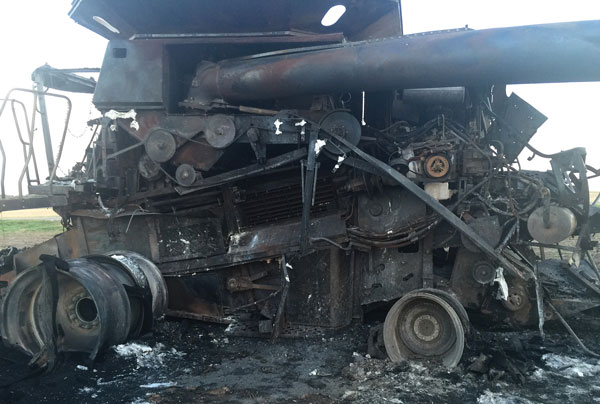
Maintenance Crucial to Preventing Combine Fires
August 5, 2019
Written By Adam Buckallew
Farmers should regularly inspect their combines’ machinery, fuel lines and electrical systems prior to and during harvest season to prevent fires.

Harvest season brings a unique combination of risk factors that increases the risk of combine fires, says Bill Field, professor of agricultural and biological engineering at Purdue University. Dust kicked up during field operations and dry plant material from crops can clog or wrap around machinery, causing it to overheat. Other common hazards are electrical malfunctions, sparks from hitting rocks, loose or slipping belts, and leaks in fuel or hydraulic lines.
Worn bearings or seals and blocked exhaust systems can cause overheating and sparks. Inspecting equipment at the end of the day can help prevent overheated components from catching fire during the night, Field says, and a hand-held thermal camera can help detect hot areas before they ignite.
Some components of the combine’s electrical systems are also at higher risk of overheating, particularly parts like starter motors and heating and cooling systems that draw a heavy electrical load.
“Fuses that blow regularly should be considered an important warning sign that a circuit is overheating somewhere,” Field says.
“Every fire involves three elements: an ignition source, fuel and oxygen. Removing one or more of these elements will prevent fire, so as you examine the combine, other agricultural machinery or a building, consider the potential for each element and where they are likely to come together to form a fire.”
In case a fire does start, farmers should always have a cellphone or two-way radio with them in the cab. Also, combines and other large units should have at least two, 10-pound, type-ABC fire extinguishers installed, Field recommends. These extinguishers should be inspected regularly to make sure the lock pin is intact, tamper seals are unbroken and the tank is still full.
A second line of defense is to have a tractor and disc on standby to create a firebreak around the combine, Field adds. This can help keep the flames from spreading across the field or to neighboring properties.
Since insulated cabs may prevent operators from noticing smoke or flames until it is too late, combine fires can start without warning and quickly grow out of control, Field says.
“Even small leaks in a fuel or hydraulic system can cause a small fire to become a large one in seconds,” Field says. “For example, a leak causing diesel fuel to be sprayed into the engine compartment of a tractor or combine can cause the compartment temperature to go from a normal operating temperature to over 1,000 degrees Fahrenheit in seconds. Fires of that intensity are almost impossible to extinguish before the machine is destroyed.”
In addition to damaging or destroying the combine, other consequences may include crop loss, field fires spreading to adjoining properties, and operator injury or death.
“Ultimately, the only good fire is a contained one that keeps us warm,” Field says. “Keeping it that way in the field should be part of every farmer’s management plan this fall.”


